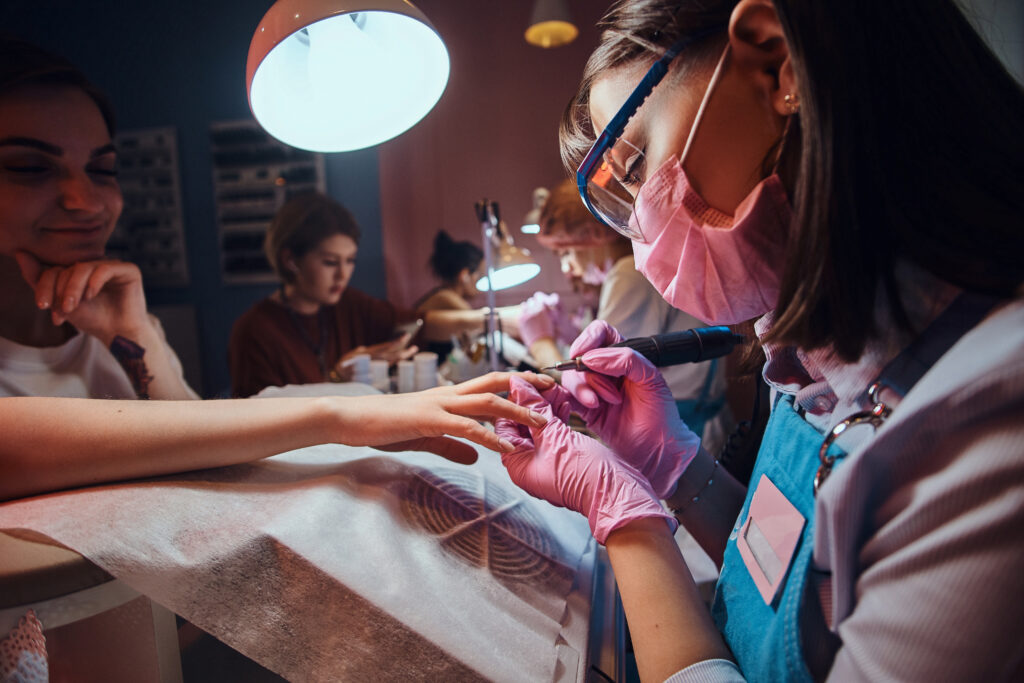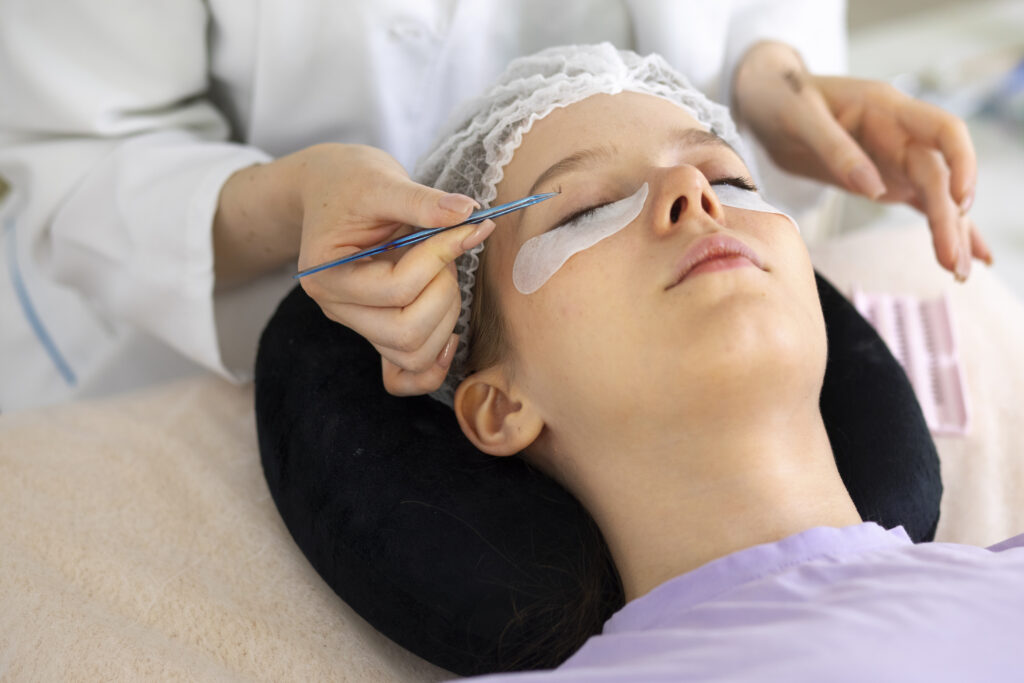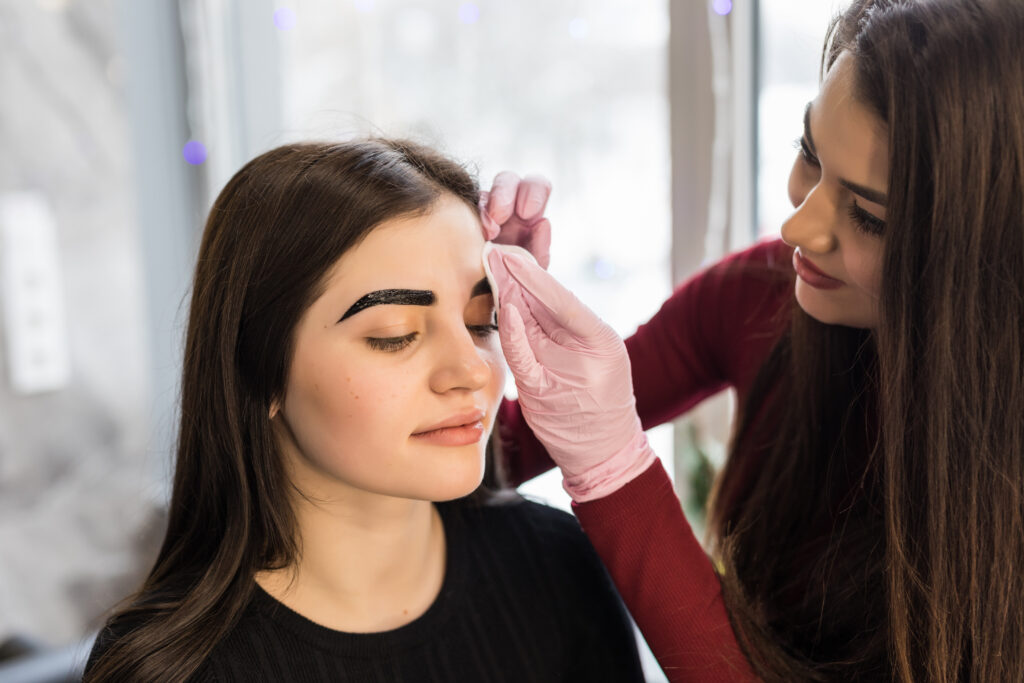Have Questions? Contact Us Now!
- By whitebunniegpa
The Crucial Role of Fundamental Training in Student Development
At MN Brow Lash & Medspa Academy, we believe that a strong foundation is the key to unlocking a student’s full potential. This blog post will explore why fundamental training is so vital for student development, using our experience in the field of powersports education as a backdrop. We’ll also touch on the specific requirements for certain specialized training programs, such as those in the beauty industry, to illustrate the breadth and depth of fundamental training across various fields.
The Essence of Fundamental Training
Fundamental training is the bedrock upon which all advanced skills are built. It’s the process of learning and mastering the basic principles, techniques, and knowledge that form the core of any discipline. In the context of powersports, this might include understanding engine basics, safety protocols, and basic maintenance skills. For other fields, like cosmetic tattooing, it involves mastering techniques for brows, lips, and liners.
Why is Fundamental Training So Important?
1. Building a Strong Foundation:
Just as a house needs a solid foundation to withstand the test of time, a student’s skill set needs a robust base to support future learning and growth. Fundamental training provides this foundation, ensuring that students have a comprehensive understanding of the basics before moving on to more complex concepts.
2. Developing Proper Techniques:
In any field, there are right and wrong ways to do things. Fundamental training teaches students the correct techniques from the start, preventing the formation of bad habits that can be difficult to break later on. For instance, in powersports, learning the proper way to handle a vehicle can be the difference between safety and danger.
3. Enhancing Problem-Solving Skills:
When students have a strong grasp of the fundamentals, they’re better equipped to tackle unfamiliar challenges. They can draw on their basic knowledge to analyze problems and develop effective solutions. This skill is invaluable in the real world, where unexpected issues often arise.
4. Boosting Confidence:
As students master the basics, they gain confidence in their abilities. This confidence is crucial for tackling more advanced concepts and taking on bigger challenges. At MC Powersports, we’ve seen countless students transform from hesitant beginners to confident riders through comprehensive fundamental training.
5. Ensuring Safety:
In many fields, including powersports and beauty services, safety is paramount. Fundamental training instills the importance of safety protocols and best practices from day one, creating a culture of responsibility and care.
6. Facilitating Specialization:
A strong foundation allows students to more easily specialize in specific areas of their chosen field. For example, a student with a solid understanding of basic engine mechanics will find it easier to specialize in high-performance tuning or electric vehicle technology.
7. Improving Communication Skills:
Fundamental training often involves learning the language and terminology specific to a field. This knowledge enables students to communicate effectively with peers, instructors, and future colleagues or clients.
8. Fostering a Love for Learning:
When students see how mastering the basics leads to tangible improvements in their skills, it often ignites a passion for continued learning. This enthusiasm can drive lifelong personal and professional development.
The MN Academy Approach to Fundamental Training
At MN Brow Lash & Medspa Academy, we’ve developed a comprehensive approach to fundamental training that includes:
1. Theoretical Knowledge: We ensure students understand the principles behind what they’re doing, not just the ‘how’ but the ‘why’.
2. Hands-On Practice: We believe in learning by doing. Our students spend significant time practicing skills under expert supervision.
3. Safety First: Safety is woven into every aspect of our training, from basic maintenance to advanced riding techniques.
4. Progressive Learning: We structure our courses to build on previously learned skills, ensuring a logical progression of knowledge.
5. Real-World Application: We incorporate real-world scenarios into our training to prepare students for the challenges they’ll face outside the classroom.
Enroll Now!
2-Weeks Fundamental Advanced Microblading & PMU Training
Fundamental Training in Other Fields
Case Study: Fundamental Training in Cosmetic Tattooing
In the field of cosmetic tattooing, fundamental training is crucial for ensuring both the safety of clients and the quality of results. Many programs require a minimum of 100 hours of fundamental training on techniques for brows, lips, and liners. This training typically includes:
1. Pre-course Homework: Students are often required to complete theoretical study and preparatory work before attending in-person training. This might include studying anatomy, color theory, and hygiene practices.
2. On-site Training with Live Models: The bulk of the training involves hands-on practice under expert supervision. Students work on live models to gain real-world experience in a controlled environment.
3. After-course Work Completion: Following the in-person training, students are often required to complete additional assignments or case studies to reinforce their learning.
4. Apprenticeship: Many programs also include a substantial apprenticeship period, often around 200 hours, where students work alongside experienced professionals to further hone their skills and gain confidence.
This comprehensive approach ensures that students not only learn the technical skills required but also understand the importance of safety, client care, and professional ethics.
The Long-Term Benefits of Fundamental Training
Investing time and effort in fundamental training pays off in numerous ways over the long term:
1. Career Advancement:
Students with a strong foundation are often better positioned for career advancement. They can more easily adapt to new technologies and techniques, making them valuable assets to employers.
2 Versatility:
A solid grounding in the fundamentals allows professionals to pivot more easily between different specializations within their field. In powersports, for example, someone with strong fundamental knowledge could transition between working on motorcycles, ATVs, and snowmobiles with relative ease.
3. Innovation:
Understanding the basics deeply often leads to innovation. When you know the rules, you’re better equipped to break them creatively and push the boundaries of what’s possible in your field.
4.Teaching and Mentoring:
Those who have mastered the fundamentals are well-positioned to teach and mentor others. This can open up new career opportunities and contribute to the overall advancement of the field.
5. Problem-Solving in Complex Situations:
As professionals encounter more complex challenges in their careers, a strong foundation allows them to break these problems down into their constituent parts and develop effective solutions.
6. Adaptability to Technological Changes:
In fields that are rapidly evolving due to technological advancements, a strong grasp of the fundamentals makes it easier to adapt to new tools and techniques.
Overcoming Challenges in Fundamental Training
While the benefits of fundamental training are clear, there can be challenges in implementing and completing such training:
1. Time Commitment:
Comprehensive fundamental training often requires a significant time investment. For example, the 100 hours of training plus 200 hours of apprenticeship in cosmetic tattooing represents a substantial commitment.
2 Cost:
Quality training programs can be expensive, which may be a barrier for some students.
3. Patience:
Mastering the basics can sometimes feel slow or repetitive. Students may be eager to move on to more advanced topics before they’ve fully grasped the fundamentals.
4. Relevance:
Sometimes students may question the relevance of certain fundamental topics to their specific goals. It’s important to help them understand how these basics will benefit them in the long run.
Strategies for Effective Fundamental Training
To maximize the benefits of fundamental training, consider the following strategies:
1. Set Clear Goals:
Help students understand what they’ll be able to achieve after mastering the fundamentals. This can increase motivation and engagement.
2. Use Varied Teaching Methods:
Incorporate a mix of theoretical learning, practical exercises, and real-world applications to cater to different learning styles.
3. Provide Regular Feedback:
Offer consistent, constructive feedback to help students understand their progress and areas for improvement.
4. Encourage Peer Learning:
Create opportunities for students to learn from and teach each other, reinforcing their own understanding in the process.
5. Highlight Real-World Applications:
Regularly demonstrate how fundamental skills apply to real-world situations to maintain student interest and motivation.
6. Celebrate Milestones:
Acknowledge and celebrate students’ progress as they master different fundamental skills.
At MN Brow Lash & Medspa Academy, we’ve seen firsthand how a strong foundation in the fundamentals can set students up for long-term success. Whether in cosmetic tattooing, or any other field, investing time and effort in mastering the basics pays dividends throughout one’s career.
Fundamental training is not just about learning specific skills; it’s about developing a mindset of continuous improvement, attention to detail, and respect for the craft. It instills confidence, fosters problem-solving abilities, and lays the groundwork for innovation and specialization.
As we continue to evolve our training programs at MN Brow Lash & Medspa Academy, we remain committed to the principle that a strong foundation is the key to supporting a student’s full potential. We encourage all learners, regardless of their field, to embrace fundamental training as a crucial step in their personal and professional development journey.
Remember, every expert was once a beginner. The path to mastery begins with a solid foundation, built through comprehensive and dedicated fundamental training.
FAQs
1. How long does fundamental training typically take?
The duration varies by field, but it often ranges from several weeks to several months. For example, in cosmetic tattooing, there’s a 100-hour requirement for fundamental training, plus a 200-hour apprenticeship.
2. Is fundamental training necessary if I already have some experience in the field?
Yes, fundamental training is crucial even for those with some experience. It ensures you have a comprehensive understanding of the basics and helps correct any misconceptions or bad habits you may have developed.
3. How does fundamental training differ from advanced training?
Fundamental training focuses on mastering the basic principles, techniques, and knowledge that form the core of a discipline. Advanced training builds on these fundamentals to teach more complex, specialized, or cutting-edge skills.
4. Can fundamental training be completed online?
While some aspects of fundamental training can be done online, many fields require hands-on, in-person training for practical skills. At MC Powersports, we believe in a blended approach that combines theoretical online learning with practical, hands-on experience.




